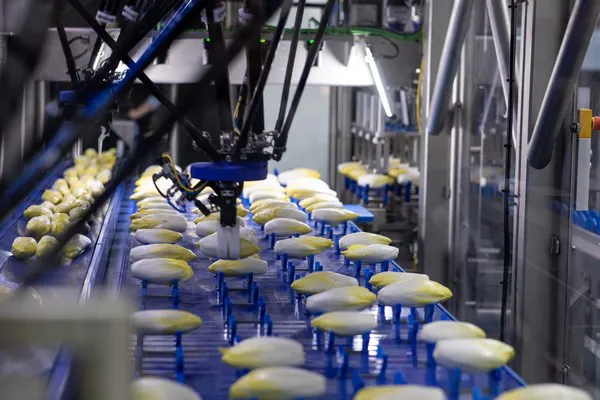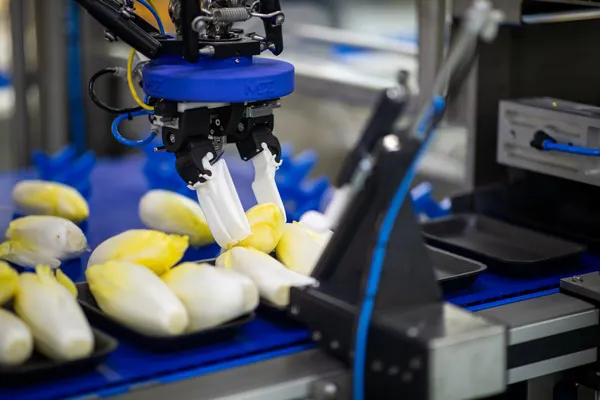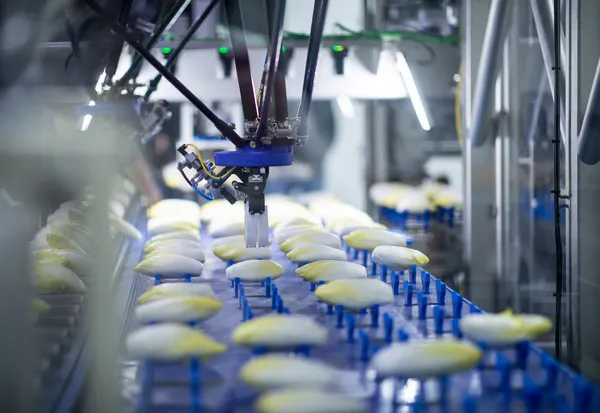Chicory is losing popularity. Fewer and fewer people, especially the younger generation, are eating this vegetable—all the more reason to take action. Several Dutch chicory companies, including Reijnpack, are joining forces to get chicory back on consumers' plates more often.
"The time of waiting to see what happens is over," begins Martine Lisseveld-Reijngoudt of the chicory cultivation company Reijnpack. "Chicory's popularity has been declining for years. If we want to stimulate its consumption, now is truly the time." This vegetable is still at the bottom of the top ten most-eaten vegetables. And that is mainly thanks to the older generation. Young people are less fond of chicory, even though the vegetable is versatile and perfectly suits today's consumer behavior of healthy and sustainable choices.

Less chicory is being consumed, even though the vegetable is so versatile in use and fits well within today's consumer behavior of healthy and sustainable choices
Raising awareness around versatility
Reijnpack, Oxin Growers, Fossa Eugenia, and Tolpoort have jointly started a working group. "We hope to gain insight into our main growth opportunities. The group has met several times, and a group of marketing students is doing market research for us under the name Turn Marketing. We want to know what potential markets there are and how to reach them, thus, looking beyond the current chicory market. We're paying particular attention to the vegetable's image," says Martine.
She sees the product's versatility is not known well enough, especially among the younger generation. "You can do so much more with chicory than boiling it to serve with ham and cheese. You can make delicious oven dishes, incorporate it into fresh salads, use it in stir-fries; you name it. Chicory tastes unique; that's what makes it special. Many consumers wrongly think chicory is bitter. We're thinking of using influencers to get chicory back on people's plates. And we could, say, add it to baby food. Then, consumers can experience the taste of chicory from an early age."
Supermarket presentation could be better
The working group is awaiting the market research results. They hope to capitalize on current developments where choosing sustainable, local, healthy products is becoming increasingly important. Also, they believe supermarket presentation plays a role in chicory sales. "We have no influence over that, but considering how chicory is sometimes presented in supermarkets, it's genuinely a missed opportunity," Martine continues.
At the time of writing, the Christmas rush was in full swing. Besides chicory, Reijnpack also grows and packs red chicory, a sought-after product during the holidays. "Red chicory is used a lot in salads or as a garnish. We pack these, often in smaller quantities, by hand, loose in boxes. They find their way to eateries and greengrocers." Most of this chicory company's products go abroad, with Italy - a true chicory-loving country - as the main market.

Working more efficiently with less staff
Despite these struggles, Martine remains optimistic. She thinks there will always be room for this white leafy vegetable. Continuous innovation is, therefore, an essential pillar of Lisseveld-Reijngoud's family's cultivation and packaging company. It has been around for 45 years and is now one of the largest chicory packers in Europe. Two years ago, they invested in a unique, revolutionary packing line that substantially increased their capacity. "Three robotic, fully automatic weighing, sorting, and packing lines let us work more efficiently with less staff. We flow pack up to 115 heads of chicory per minute and about 95 heads per minute in trays or tray packs," she explains.
Especially now that costs have risen on all sides, those packing lines undoubtedly benefit Reijnpack. "Everything has become more expensive: energy, packaging materials, raw materials, and so on. Yields are, however, not rising alongside that. And it's becoming increasingly difficult to find sufficient, suitable personnel. Thanks to the three robot lines, we can do with ten fewer people, which makes a difference in personnel costs."
"Harvesting is still done manually, but after that, the entire process is now automated. Our chicory goes straight into the final packaging after cutting and weighing, so the limited handling benefits the product's quality," continues Martine. "Also, thanks to MDE Automation's custom-made packaging line, we collect all kinds of data down to the cultivation level. We, thus, know exactly which plots produce which product."

Robotic lines allow us to work more efficiently with fewer personnel
Smaller crop expected
Everyone is expecting a far smaller chicory crop this season. Field yields are lower because of the dry summer with its high temperatures. Less was sown too, because plenty of 'old' product was still available. Martine says she has heard that less product is coming off Belgian and French fields too. "So, there will generally be much less chicory available. Is our sector making a statement for better payout prices? It just might be. Regardless, we hope for the right balance at a fair price. Our chicory certainly deserves that," she concludes.
For more information:
Martine Lisseveld-Reijngoudt 
Reijnpack
Kwekerijweg 8
4675 PZ Sint-Philipsland
Tel.: +31 (0)167-573148
[email protected]










